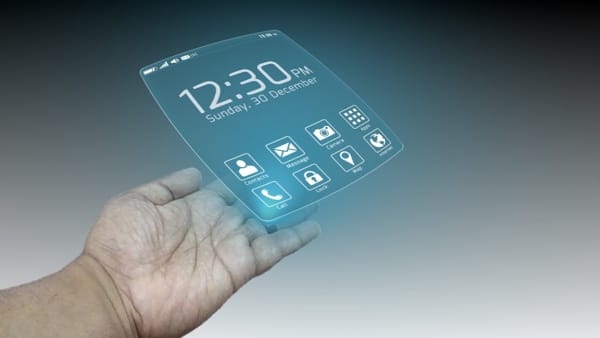What's next for smartphones?

It’s fair to say that smartphones have changed the way people live and work, but perhaps the most burning question the industry is pondering is what comes next?
In many western markets smartphone sales have almost reached saturation point, forcing companies like Samsung and Apple to come up with new ways to tempt customers with their hardware, software and ecosystems.
Some pundits claim sales of smartphones are following the same trajectory as tablets and PCs, in other words plateauing before a fall. Bob O’ Donnell, founder and chief analyst at TECHnalysis Research certainly seems to think so:
“We are clearly entering a new era where growth of traditional devices has ended and you have to think differently”.
As far as smartphones are concerned, there’s no clear answer to the question worrying handset manufacturers as to what comes next. After all, if there’s no reason to upgrade and consumers are happy with their current gadgets, that poses a problem for the manufacturers who have enjoyed a decade or so of explosive growth.
“Consumers are basically satisfied with their current devices”, says John Curran of Accenture, adding that the Internet of Things (IoT) could be promising despite the fact there have not yet been any really compelling devices.
“We’re seeing a broad range of devices, smartwatches, home automation, drones and the like“, said Curran, adding “But these are not taking off because people don’t see the personal value in their lives yet”.
Accenture recently released a survey which found that consumer intent to purchase new phones and electronics devices had fallen across more than 28 countries in the survey. A small number of consumers were interested in Internet of Things devices (such as smartwatches), but were rather concerned about factors like security and ease of use.

Globally, smartphone sales in Q1 2016 experienced the slowest growth in years at just 0.2 percent, according to IDC. Juniper Research painted an even gloomier picture with a report claiming sales have fallen by almost 6 percent to just 320 million units.
In future, innovative companies that can bring together hardware, software and new technologies like artificial intelligence will be the ones able to create new devices that delight, astound and amaze us again. Some believe that artificial intelligence and technology will seamlessly merge to a point where the device itself almost fades into the background.
“Looking to the future, the next big step will be for the very concept of the ‘device’ to fade away”, said Sundar Pichai, chief executive of Google in a blog post.
“Over time, the computer itself – whatever its form factor – will be an intelligent assistant helping you through your day. We will move from mobile first to an AI (artificial intelligence) first world”.
Perhaps a more intelligent, powerful and deeply integrated version of Google Now, Siri or Cortana will ultimately evolve to fulfil such a role, but there is still a long road ahead before we really see the benefits of artificial intelligence in our smartphones.
Back to the Internet of Things for a moment, and even industry giants like Intel, which really missed the boat on the transition to mobile-first computing, recently unveiled a major restructuring with more of an emphasis on networking, wireless and IoT.
“The biggest opportunity in the Internet of Things is that it encompasses just about everything in our lives today”, said CEO Brian Krzanich, adding “From our shoes and clothes to our homes and cars – the Internet of Things is transforming everything and every experience”.




